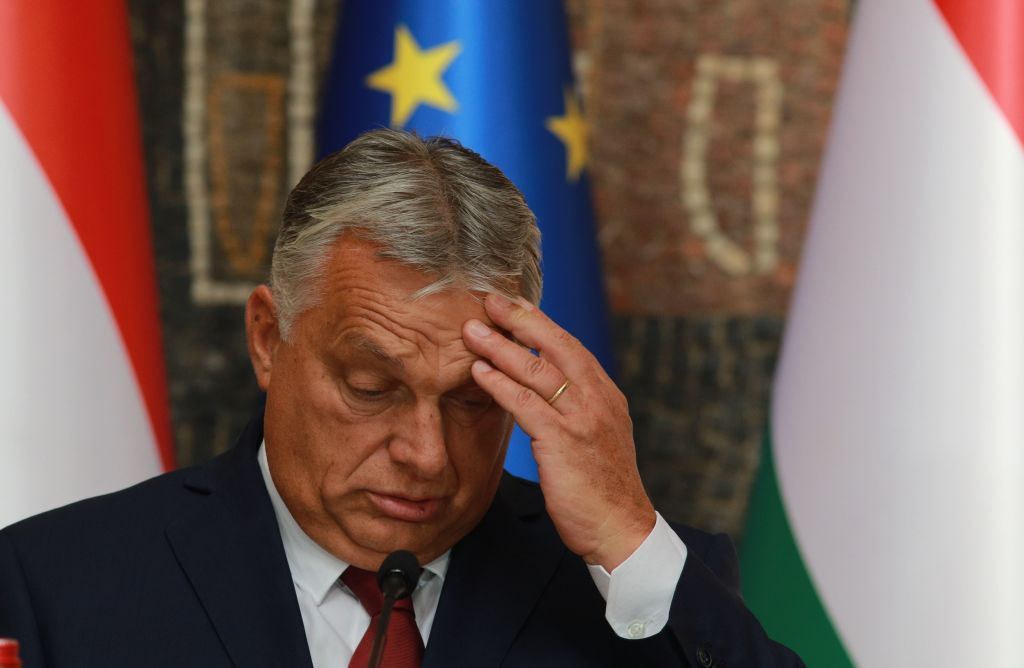Blinken Focuses on the Small Picture: The US Is Unstoppable, While the East Rises and the West Declines
(Hong Kong) on 28 September 2023
by Zhou Bajun, Ph.D. (link to original)
Blinken did not specify when the post-Cold War period had ended but, we can go by his inclusion of the COVID-19 pandemic among the challenges of that period and his use of the present continuous tense to describe how “[w]hat we’re experiencing now is more than a test of the Post-Cold War order. It’s the end of it." Blinken takes the Russia-Ukraine conflict as the main symbol of the close of the post-Cold War period’ Blinken also cited a series of other changes that have taken place in recent years, concluding, “So we find ourselves at what President Biden calls an inflection point. One era is ending, [and] a new one is beginning.”
Ignoring the Nature of Great and Unprecedented Changes
While it is difficult to pinpoint historical periods or eras with any accuracy, Blinken himself acknowledged that such statements would be controversial for decades to come. That said, we still have plenty of facts and historical logic with which to prove that the Biden administration, as represented by Blinken, is avoiding the important issues and ignoring the complexity and nature of the century-old changes in the world.
In terms of the end of the post-Cold War period, the Russia-Ukraine conflict that started in February 2022 is certainly a landmark event. However, Putin’s leadership of Russia in challenging the “post-Cold War order” started as early as August 2008, when Russia fought with Georgia, and continued through March 2014, with the annexation of Crimea.
More importantly, the so-called end of the Cold War was not just the disintegration of the Soviet Union and the great political changes in Eastern Europe; it was also what the U.S. and the West referred to as the “failure of communism” and the end of human history as a result of the spread of American and Western liberal capitalism throughout the world. On this, the fact is that the U.S. and the West remain unrealistically self-confident. The banners of socialism and communism may have been lowered in the early 1990s after the dissolution of the Soviet Union and regime changes in Eastern European countries, but they have been flying high in China. As President Xi Jinping has pointed out, history has not ended and will not end; Chinese-style modernization is the creative inheritance and development of scientific socialism in China, which accounts for about one-fifth of the human population.
For decades, the U.S. and the West labored under the illusion that China’s reform and opening-up would follow the same path as their own. In the aforementioned speech and despite admitting that American and Western democracies are in trouble, as before, Blinken attacked China and Russia for practicing so-called authoritarian political systems, and as before, he expressed his belief and conviction in the American and Western political model. The U.S. and the West are thus prevented from realizing that the most important change to the world order in the global and unprecedented events of the last 100 years is the shift in the world’s center of gravity: From the 500 years of the American-Western world, from the 16th to the 20th century, to the Eastern (Asian) world, in the 21st century. This is generally described as “the East is rising, the West is declining.”
The Trump administration announced in December 2017 and January 2018 that the U.S. would adjust its global strategy, making China and Russia its main opponents. Before the Russia-Ukraine conflict in February 2022, on Oct. 4, 2018, then-Vice President Mike Pence delivered a speech comprehensively denigrating and attacking China; on July 23, 2020, Secretary of State Mike Pompeo slandered and defamed the Chinese Communist Party at a speech at the Nixon Library. The U.S. Republican and Democratic parties and the strategic community unanimously regard China as the United States' most important adversary; indeed, Blinken asserted in his speech that China “poses the most significant long-term challenge” because it “not only aspires to reshape the international order, [but] it increasingly has the economic, the diplomatic, the military, the technological power to do just that.” It is in the same vein as the Trump administration — the transition from the old to the new era occurred long before February 2022.
The ‘Pot-Kettle’ Decline of US Hegemony
In the same speech, Blinken had to acknowledge that “as this competition [among the great powers] ramps up, many countries are hedging their bets.” He called the Biden administration’s response to changes in the world order one of “humility and confidence,” which reflects the decline of U.S. hegemony.
Recall that, after 9/11, President George W. Bush’s hard-line implementation of unilateralism reflected the political and military unipolarity of the world order in the post-Cold War era. Seven years later, in September 2008, the American investment bank Lehman Brothers was forced to file for bankruptcy, and the U.S. subprime crisis deteriorated into a once-in-a-century financial crisis. The U.S. had no choice but to call for a G20 leaders’ summit to ask emerging economies such as China for a helping hand. In January 2009, Barack Obama took office at the White House, and Secretary of State Hillary Clinton made a statement about adjusting the Bush administration’s unilateralism, advancing the view that world affairs could not be conducted without the U.S., and that, on its own, the U.S. could not do so either; she also suggested reestablishing U.S.-Russia relations. The U.S.’ rapid descent from the peak of the post-Cold War era was entirely self-inflicted.
Both Biden and Blinken make vague reference to a “new era” but are unable to explain where it is. That is because they can see no clear path for the U.S. ahead.
The author is a senior current affairs commentator.


